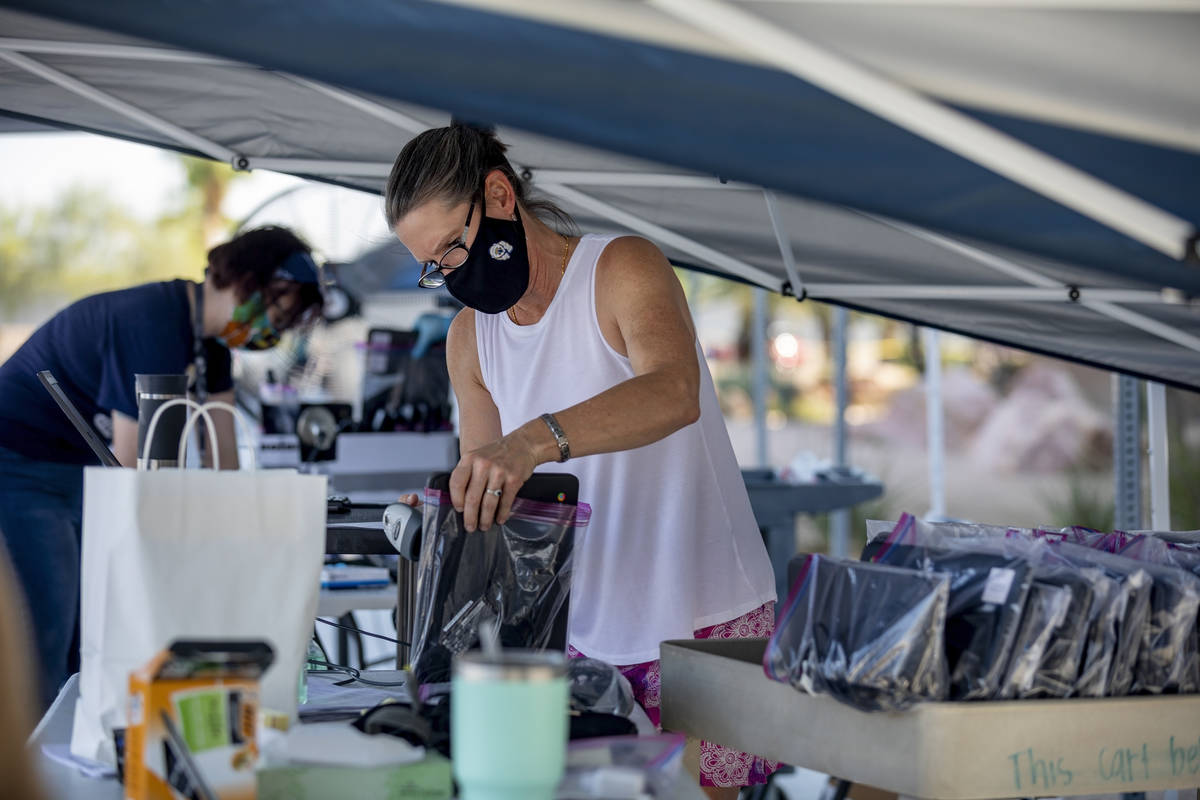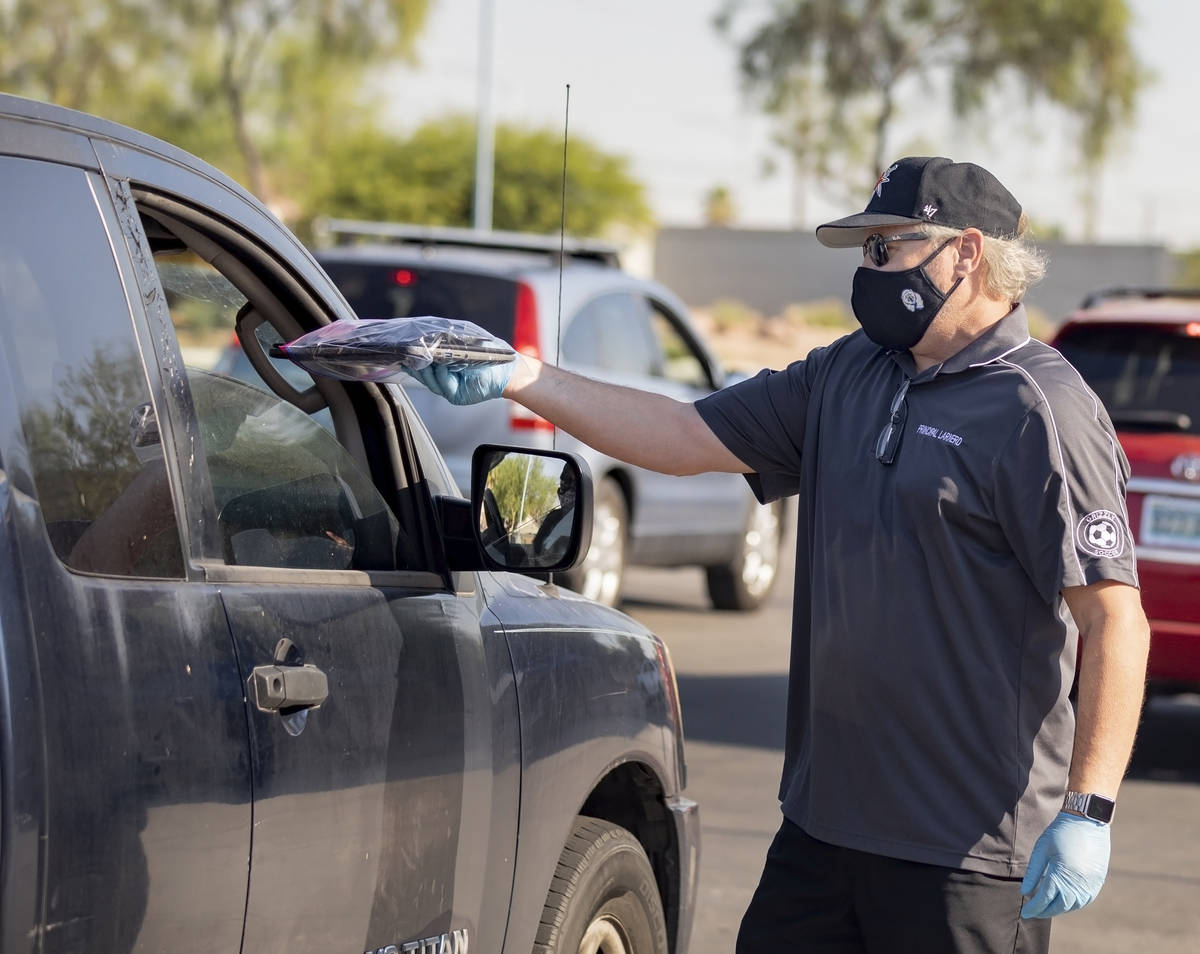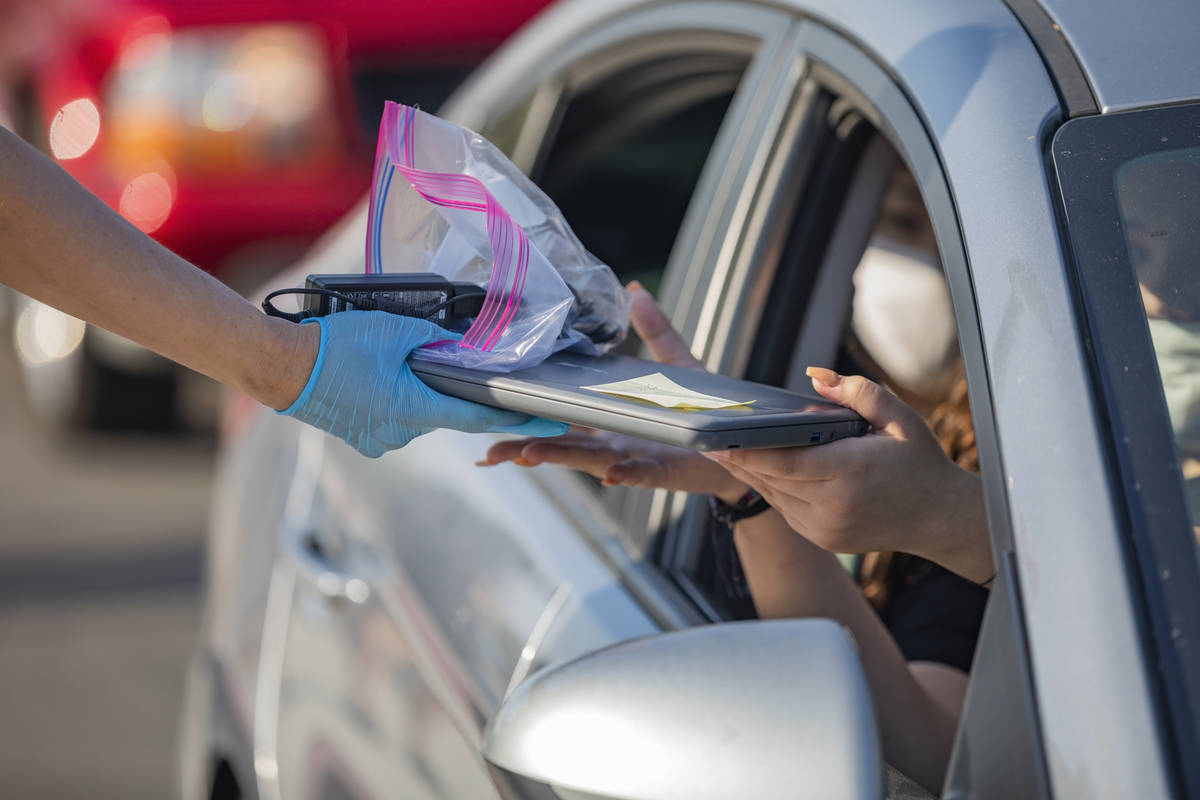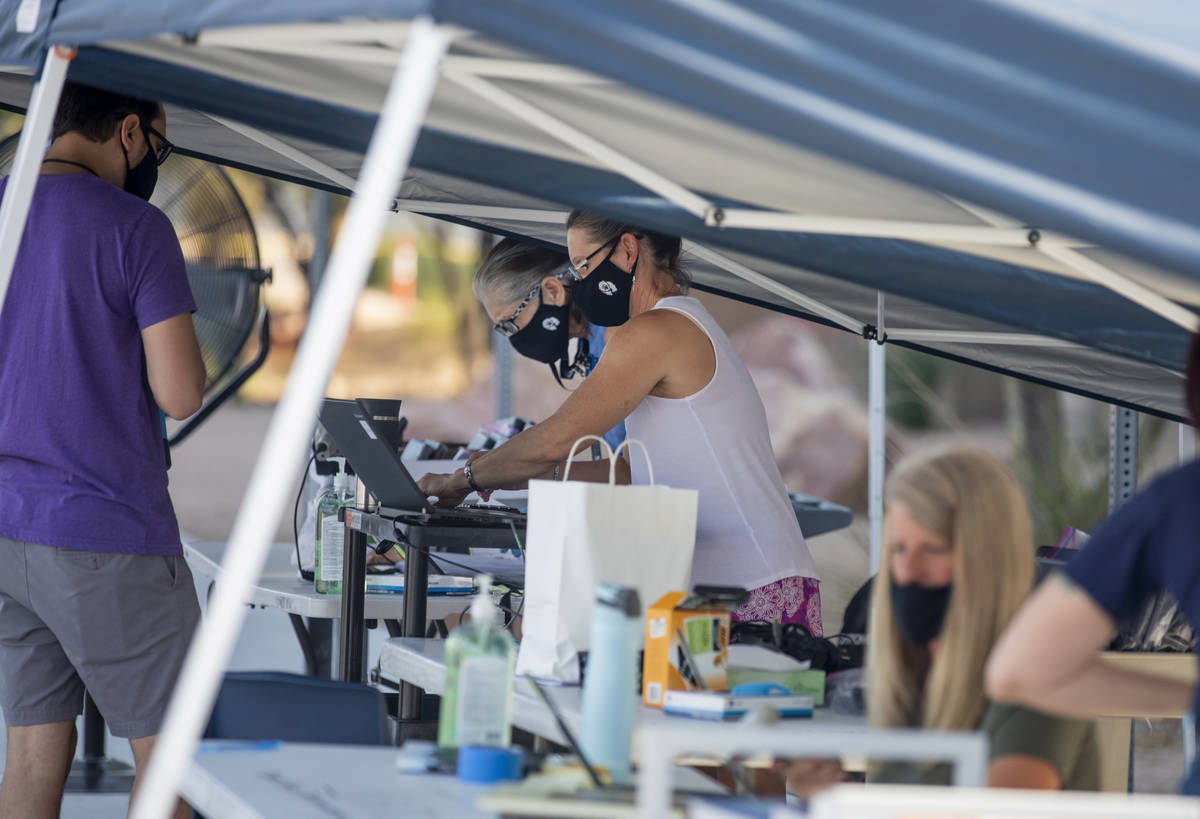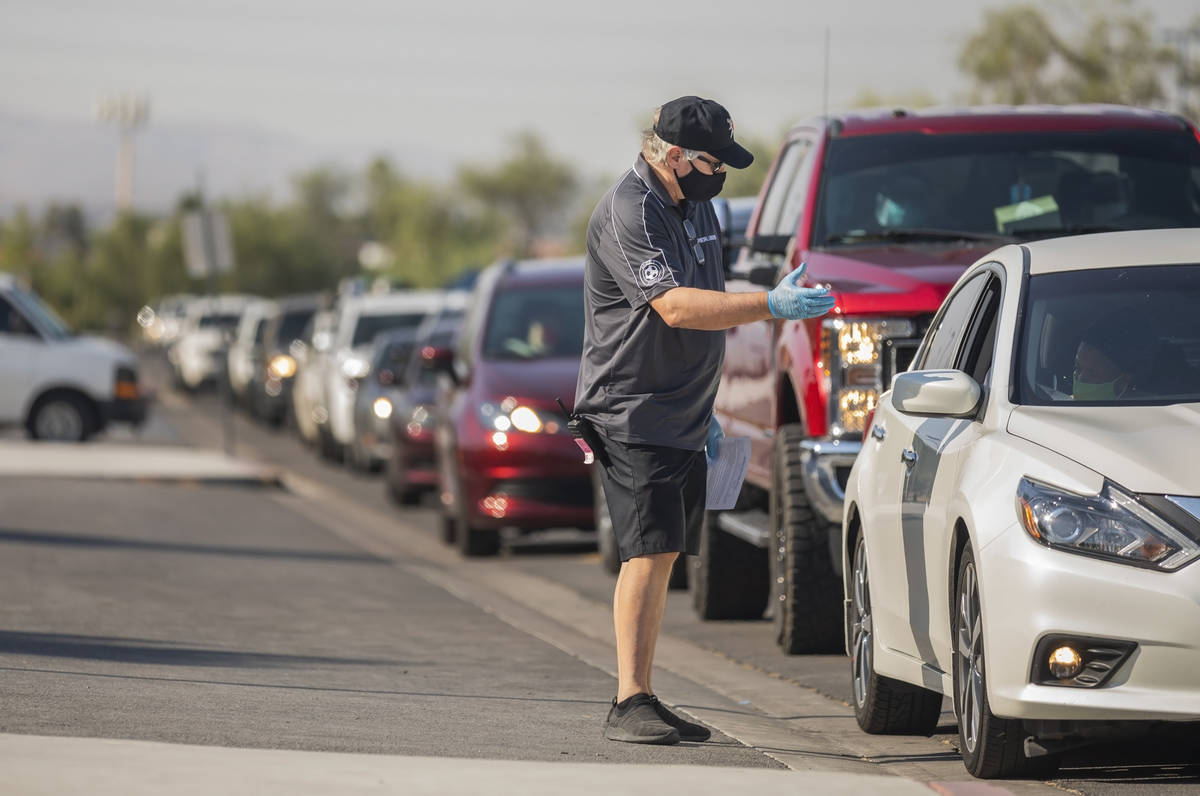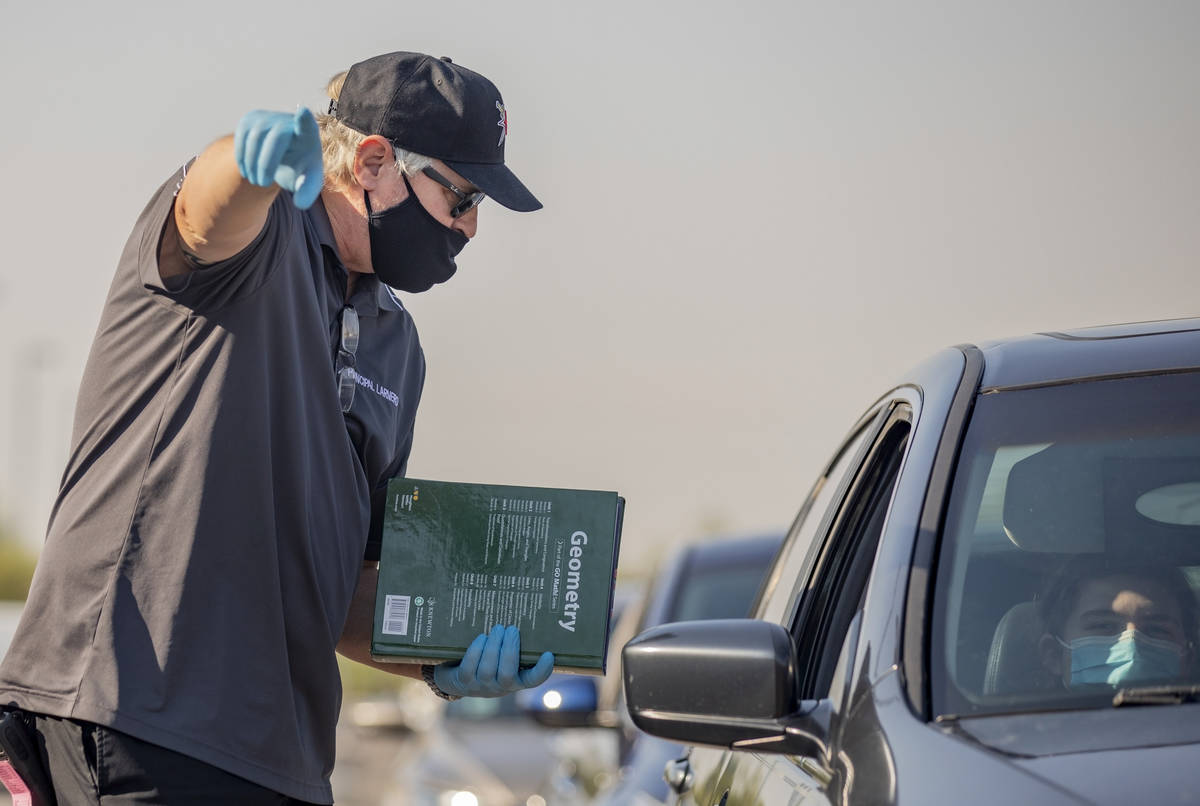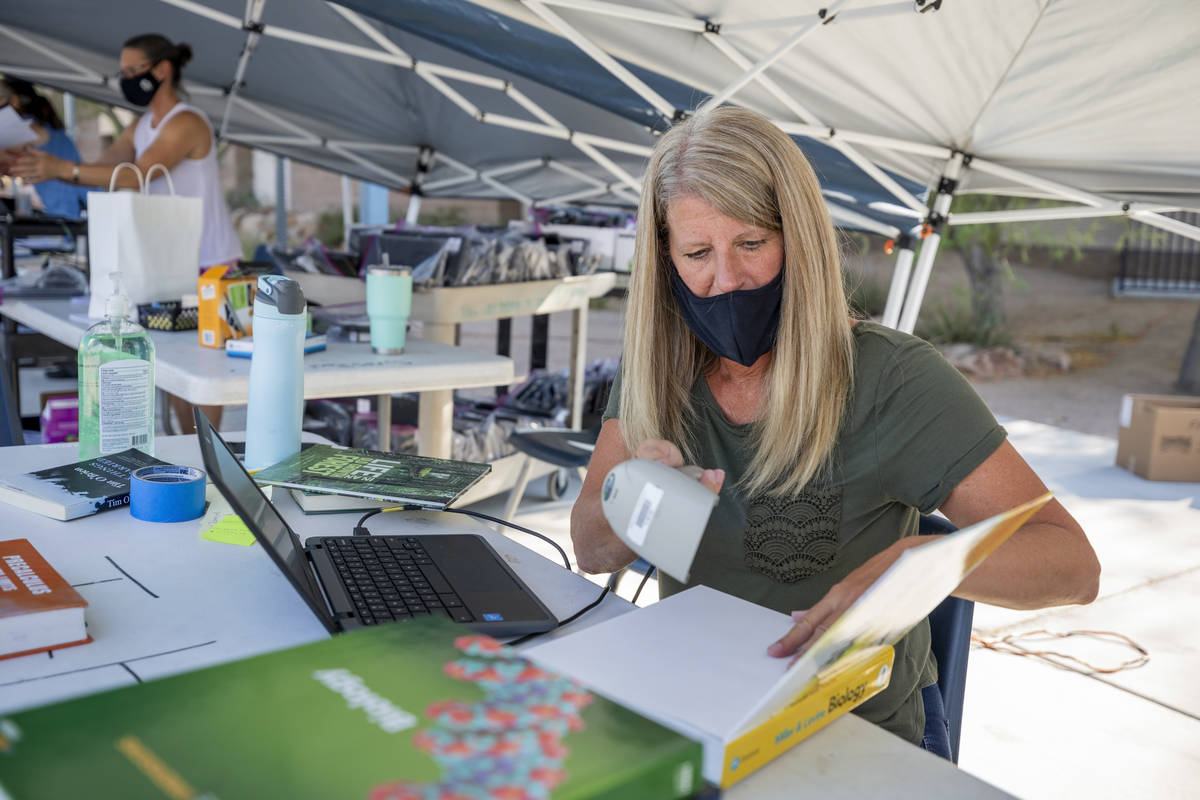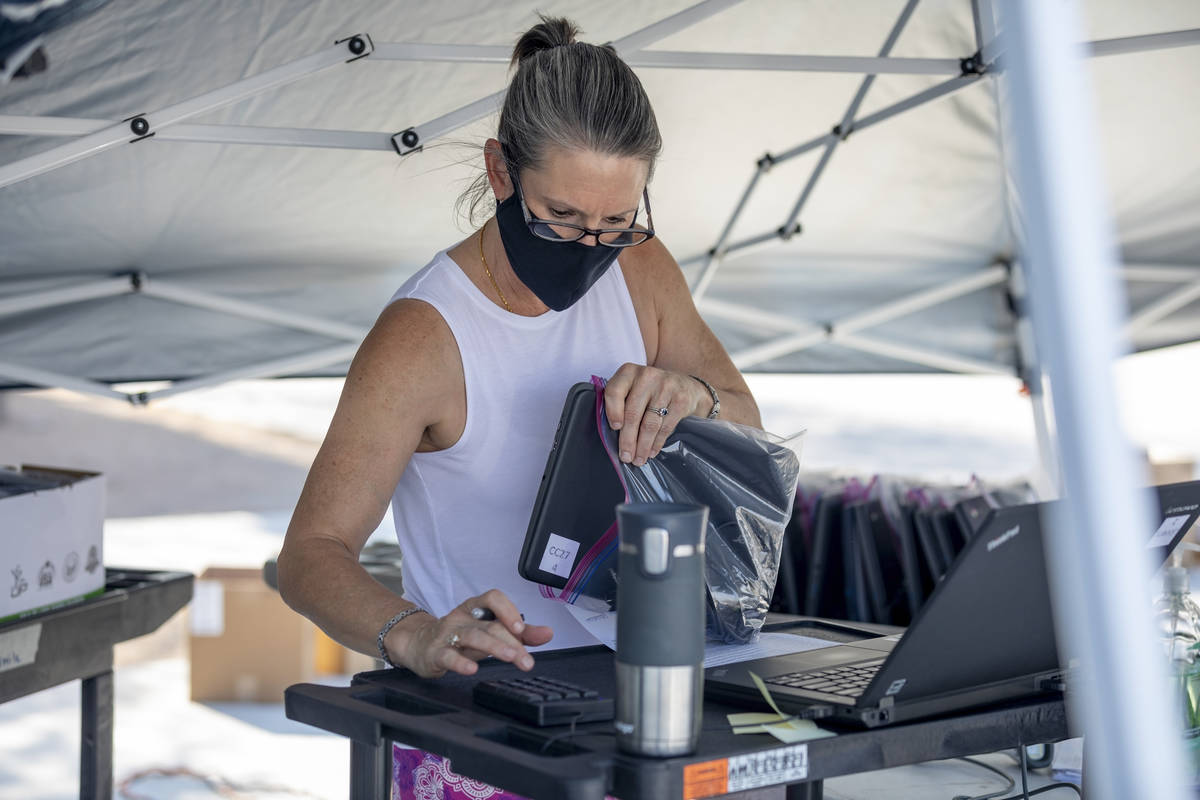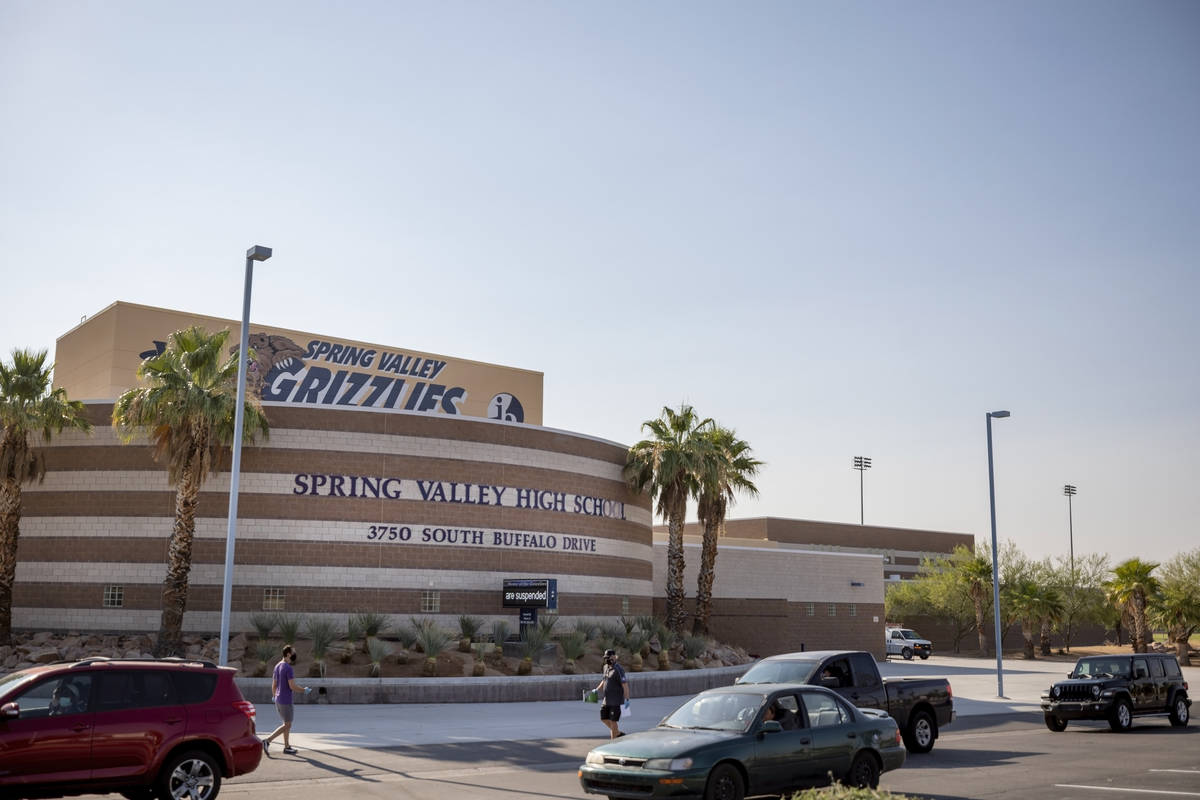Clark County students get Chromebooks for distance learning
Clark County School District campuses are furiously distributing thousands of Chromebooks to students as they prepare for the resumption of distance learning at the start of the new school year.
Aug. 24 is the first day of school for students, who, as they did in the spring, will again receive fully remote instruction because of the COVID-19 pandemic. The exception: Some rural schools, including three in the Moapa Valley, are planning to open with a hybrid mix of in-person and remote instruction.
Each CCSD school is getting in touch with families “to assess technology needs and arrange for distribution of Chromebooks or other devices for those students without one,” the school district said in a back-to-school guide released Monday.
Many schools started distributing Chromebooks, which are basic, fairly inexpensive laptop computers, last week.
Students in preschool or in life skills, functional life skills and autism self-contained programs will receive an iPad to use during distance education, according to the district’s guide.
CCSD is working to acquire approximately 76,000 additional Chromebooks to reach a 1-to-1 student-to-device ratio and “retain an adequate inventory for replacement during the school year,” the district said in a Thursday statement to the Review-Journal.
$23 million needed
The district did not say how many of the devices it has purchased.
It most recently addressed the matter at a School Board meeting May 7, when it said it had deployed 85,302 Chromebooks to schools during springtime distance learning. It said it had 157,222 devices that hadn’t yet been deployed.
CCSD estimates that the additional Chromebooks will cost $23 million, which would be covered by federal coronavirus emergency funds.
“CCSD continues to work with community partners to assist families with obtaining connectivity at home and will pursue devices where necessary,” according to the statement.
The district said it expects to have enough Chromebooks ready for deployment this fall. “Schools are currently collecting survey data to identify which students have a need for a device or connectivity and are prioritizing the deployment of existing device inventory to meet those expressed needs.”
At its Aug. 13 meeting, the School Board also is slated to consider approving two purchases to help students who don’t have home internet access.
The board will consider purchasing up to 20,000 one-year in-home Connect2Compete internet connections from Cox Communications, according to meeting materials.
District eyes more hot spots
In total, CCSD would pay an estimated $4.8 million using general funds and federal coronavirus relief money.
School trustees are also slated to consider purchasing up to 5,000 Kajeet mobile “hot spots” for qualifying CCSD students. The estimated one-year cost is $1.8 million and would be paid for with grant or general fund money.
There’s a section of CCSD’s back-to-school guide that focuses on resources for families who don’t have internet access at home.
“Alternate plans will be determined for students without connectivity,” according to the guide.
The guide refers families to a CCSD online directory with a list of free Wi-Fi hot spots available for student use, including at public libraries and local businesses.
CCSD wireless internet-equipped school buses, which ran this spring, “may also be deployed around the county as needed,” according to the guide.
Spring Valley High School had about 2,300 Chromebooks prior to the COVID-19 pandemic and is now distributing those to students, Principal Tam Larnerd said.
The school received almost every Chromebook back from its graduating seniors and already had 393 checked out to underclassmen during distance learning this spring, Larnerd said.
Survey finds big need
To prepare for the upcoming school year, Spring Valley, which has more than 2,500 students, surveyed families and received 1,916 responses. Of those respondants, 1,030 said their student needed a Chromebook, and 69 indicated they don’t have internet access at home.
Spring Valley High distributed Chromebooks for a couple of hours each morning over several days, starting last week and wrapping up Tuesday. By Monday afternoon, the school had handed out 687.
The school used a drive-thru format for distribution, handing a gallon-size freezer bag with a Chromebook and charger to a student or parent who remained in his or her car. School employees also collected students’ textbooks from last school year.
Students who needed a Chromebook made an appointment for a 30-minute time slot. The school had a limit of 70 students per time slot and there were often lines stretching out of the school’s parking lot.
Spring Valley is using the same computer program it uses to check out school library books to keep track of Chromebooks, matching each Chromebook’s bar code to an individual student.
The school also has about 70 of the Kajeet portable hot spots through the Verizon cellular network, and it plans to distribute them later this month to students who don’t have home internet access.
At Desert Pines High School in east Las Vegas, more than 1,000 students requested a Chromebook, and the school continues to hear from more families, Principal Isaac Stein said.
The school, which has more than 3,200 students, distributed some Chromebooks it already had and some it received from the school district.
In response to a survey of school families, 20 percent indicated their student didn’t have a computing device and about 10 percent said they don’t have internet connectivity.
Burkholder Middle School in Henderson also used survey responses to determine who needed a Chromebook. School employees also called parents who didn’t respond.
“From that, we got a pretty good response,” Principal Chris Hermes said.
Hot spots wait in wings
Burkholder already has one Chromebook for every student, thanks to a past grant. Incoming seventh- and eighth-graders who were at the school last year already had one they used for springtime distance learning.
The school has received about two-thirds of Chromebooks back from graduating eighth-graders so far. Employees cleaned and refurbished them before distributing them over three days last week to incoming sixth-graders and other new students. Additional devices will be distributed via appointment for the rest of the summer.
McCaw STEAM Academy in Henderson, which also sent out a survey and called families, plans to begin distributing about 470 Chromebooks to students on Aug. 11, although that number continues to grow. And the total includes some devices distributed this spring during distance learning.
The school received about 200 Chromebooks from the school district to support deployment, Principal Jennifer Furman-Born said in an email to the Review-Journal.
Less than 1 percent of students at McCaw STEAM Academy are struggling with internet access issues, she said, and the school is working to solve that problem.
Burkholder also has Kajeet hot spot devices but hasn’t activated them yet. Hermes said the school is aware of about 14 families that have internet connectivity issues but is waiting to hear what CCSD’s plan is for providing internet access before proceeding.
“My goal is to provide internet service one way or another,” he said.
Contact Julie Wootton-Greener at jgreener@reviewjournal.com or 702-387-2921. Follow @julieswootton on Twitter.



